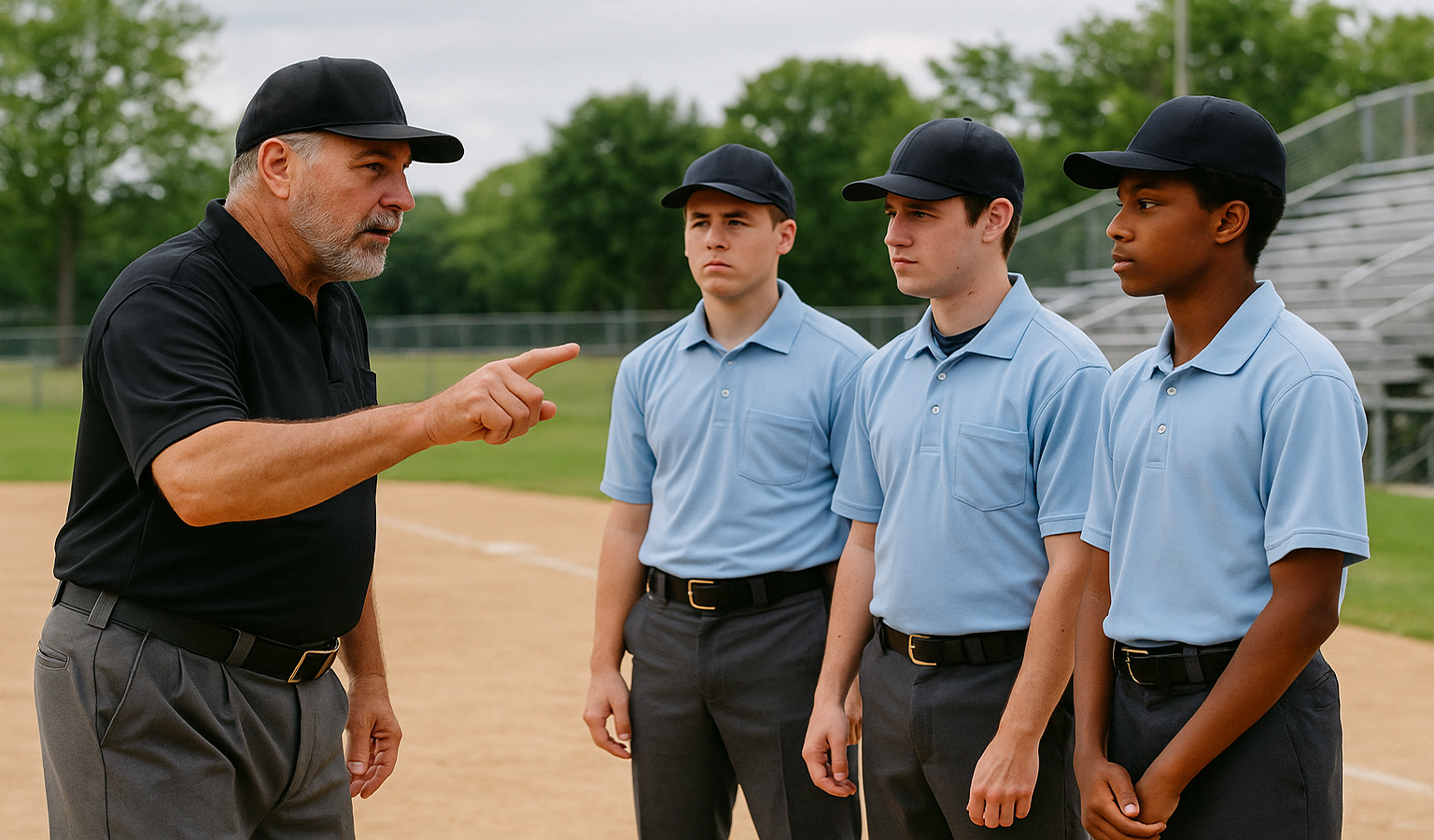Umpiring is one of the most challenging—and rewarding—roles in youth sports. It requires confidence, quick decision-making, rule knowledge, and the ability to manage a game with fairness and authority. Yet, many new umpires underestimate how much skill and preparation the job truly demands. That’s where proper training makes all the difference. At Olmsted Umpires, we believe that education, hands-on experience, and mentorship are the foundation for great officiating—and for maintaining the integrity of youth baseball and softball.
The best umpires are not just rule enforcers; they are game managers. Every pitch, every play, and every close call relies on judgment, positioning, and composure under pressure. Without proper training, even the most enthusiastic newcomer can quickly feel overwhelmed. A well-trained umpire, however, develops the instincts and confidence to make decisive calls and handle tense moments with professionalism. Training helps transform uncertainty into control—something that players, coaches, and fans notice immediately.
Proper training begins with mastering the rulebook. Baseball and softball have layers of regulations that can vary by age group, league, or tournament. Understanding those details ensures consistency and fairness. But beyond memorizing rules, training teaches application—how to interpret situations in real time. Knowing when to invoke a specific rule or how to handle an unusual play separates the novice from the professional.
Equally important is learning the mechanics of umpiring. Mechanics refer to an umpire’s positioning, movement, and timing—elements that directly affect accuracy. Being in the right spot at the right time often determines whether a call is correct. Through drills, field simulations, and live scrimmages, umpires learn how to read the play, anticipate the action, and adjust positioning accordingly. These skills cannot be fully learned in a classroom; they come from guided, hands-on practice.
At Olmsted Umpires, we emphasize not just what to call—but how to call it. Game management and communication are critical parts of training. Umpires must interact with coaches and players respectfully yet firmly, maintaining authority without escalation. A calm, professional demeanor keeps the game flowing smoothly and demonstrates control even in high-pressure moments. Our instructors focus on tone, body language, and confidence—traits that turn good umpires into great ones.
Training also creates a sense of community and accountability. When umpires work together under a shared standard, leagues benefit from consistency and reliability. Properly trained officials reduce conflicts, shorten game delays, and increase overall enjoyment for everyone involved. Parents, players, and coaches gain trust in the system, knowing that games are officiated with competence and fairness.
Beyond the field, umpire training builds valuable life skills. Decision-making, leadership, communication, and professionalism are all developed through officiating. Many young people who start umpiring through programs like Olmsted Umpires go on to apply these traits in future careers and community roles.
Ultimately, proper training is about more than just making the right call—it’s about upholding the spirit of the game. When umpires are prepared, the game runs smoother, players compete with respect, and everyone leaves with a better experience. At Olmsted Umpires, we’re proud to help officials reach that standard through dedicated instruction, mentoring, and opportunity. Because when the training is strong, so is the game.
To learn more about Olmsted Umpires, please visit ClubBaseballOhio.com/OlmstedUmpires.

